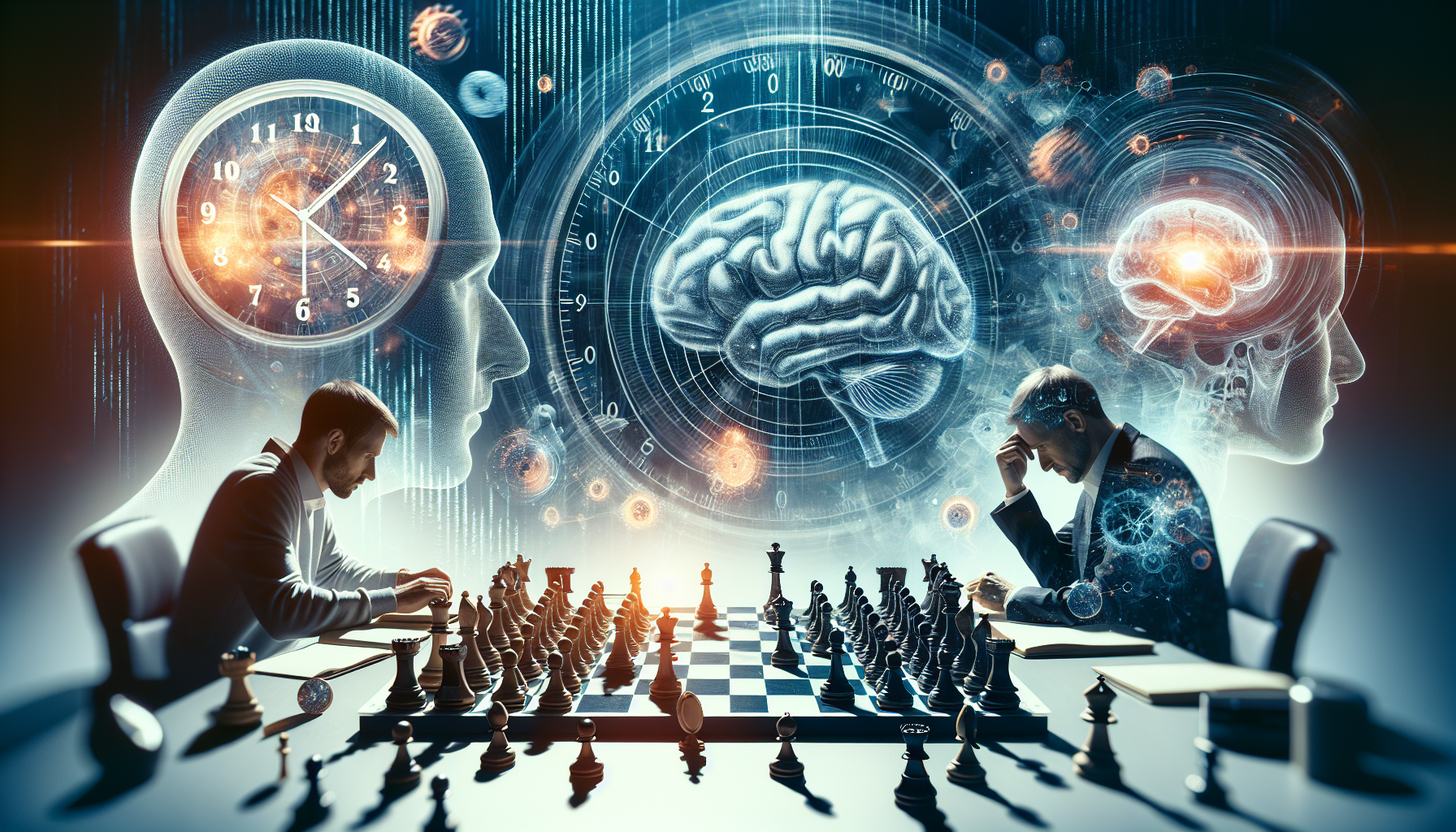The Science of Expertise: How to Become an Expert in Any Field

Table of Contents
🧠 The Power of Memory
Have you ever wondered what sets experts apart from the rest of us? Why are some people able to perform at such a high level in their respective fields? The answer lies in the power of memory and pattern recognition.
In a fascinating experiment, researchers studied the memory abilities of chess players. They set up a chessboard with pieces positioned as they might be during a game, and each player was allowed to look at the board for five seconds. They were then asked to replicate the setup from memory on a second board. The results were astonishing.
- The chess master could recall the positions of 16 pieces after just one look.
- The advanced amateur could recall 8 pieces.
- The beginner could only recall 4 pieces.
But here's where it gets really interesting. When the researchers arranged the board with pieces in random positions that would never arise in a real game, the chess master performed no better than the beginner. After the first look, all players, regardless of their skill level, could only remember the location of three pieces. This experiment showed that chess experts have better memory specifically for chess positions that could occur in a real game.
This ability to recognize patterns and chunks of information is what sets experts apart. Rather than seeing individual pieces at individual positions, they see a smaller number of recognizable configurations. This phenomenon is called 'chunking'.
🔍 The Power of Recognition
At its core, expertise is about recognition. Just as we recognize faces, experts like Magnus Carlsen, the five-time world chess champion, recognize chess positions. This recognition leads to intuition and the ability to make quick, accurate decisions.
In an interview, Carlsen explained that most of the time, he knows what to do in a chess game without having to figure it out. He relies on his intuition, which is a result of years of practice and pattern recognition.
But recognition and intuition don't come easily. It takes a long time and a deliberate practice to develop the long-term memory of an expert. The popular rule of thumb is that it takes around 10,000 hours of practice to become an expert in any field. However, simply putting in the hours is not enough. There are four additional criteria that must be met:
- Many repeated attempts with feedback
- A valid environment with regularities that make it somewhat predictable
- Timely and clear feedback from each attempt
- Deliberate practice at the edge of your ability
❓ Frequently Asked Questions
Q: How do chess masters have better memory specifically for chess positions?
A: Chess masters have seen and studied thousands of chess games. Over time, their brains have learned to recognize patterns instead of individual pieces at individual positions. This ability to chunk information allows them to quickly and accurately recognize complex stimuli.
Q: Why do experts in low validity environments like stock picking often fail to outperform the market?
A: Stock picking is a low validity environment where random chance plays a significant role. Over the short term, stock price movements are almost entirely random, so even experienced professionals struggle to make accurate predictions. In fact, studies have shown that the majority of actively managed investment funds fail to beat the market average over the long term.
Q: How can I become an expert in any field?
A: To become an expert, you need to actively interact with problems in your field. This involves repeated attempts with feedback, practicing in a valid environment, and pushing yourself outside of your comfort zone. Deliberate practice is key, as it allows you to improve and recognize patterns more effectively.
Q: How long does it take to become an expert?
A: The popular rule of thumb is that it takes around 10,000 hours of deliberate practice to become an expert. However, it's important to note that simply putting in the hours is not enough. To truly become an expert, you need to meet the additional criteria mentioned earlier.
Q: Why do college admissions officers and recruitment specialists struggle to accurately predict success?
A: Delayed feedback is a challenge for college admissions officers and recruitment specialists. They often don't receive timely information on how their decisions have played out in the long term. This makes it harder for them to recognize patterns of success and accurately predict future performance.
🌟 The Key to Expertise
True expertise is built on a foundation of recognition and pattern recognition. Experts have highly structured information stored in their long-term memory, allowing them to make quick and accurate decisions in their respective fields.
However, becoming an expert is not easy. It takes time, deliberate practice, and a willingness to step outside of your comfort zone. Experts are not born; they are made through repeated attempts, timely feedback, and thousands of hours of deliberate practice.
So, if you want to become an expert in any field, remember to actively interact with problems, seek feedback, and push yourself to learn and grow. With dedication and the right approach, you can unlock the power of expertise.
Comments
Post a Comment